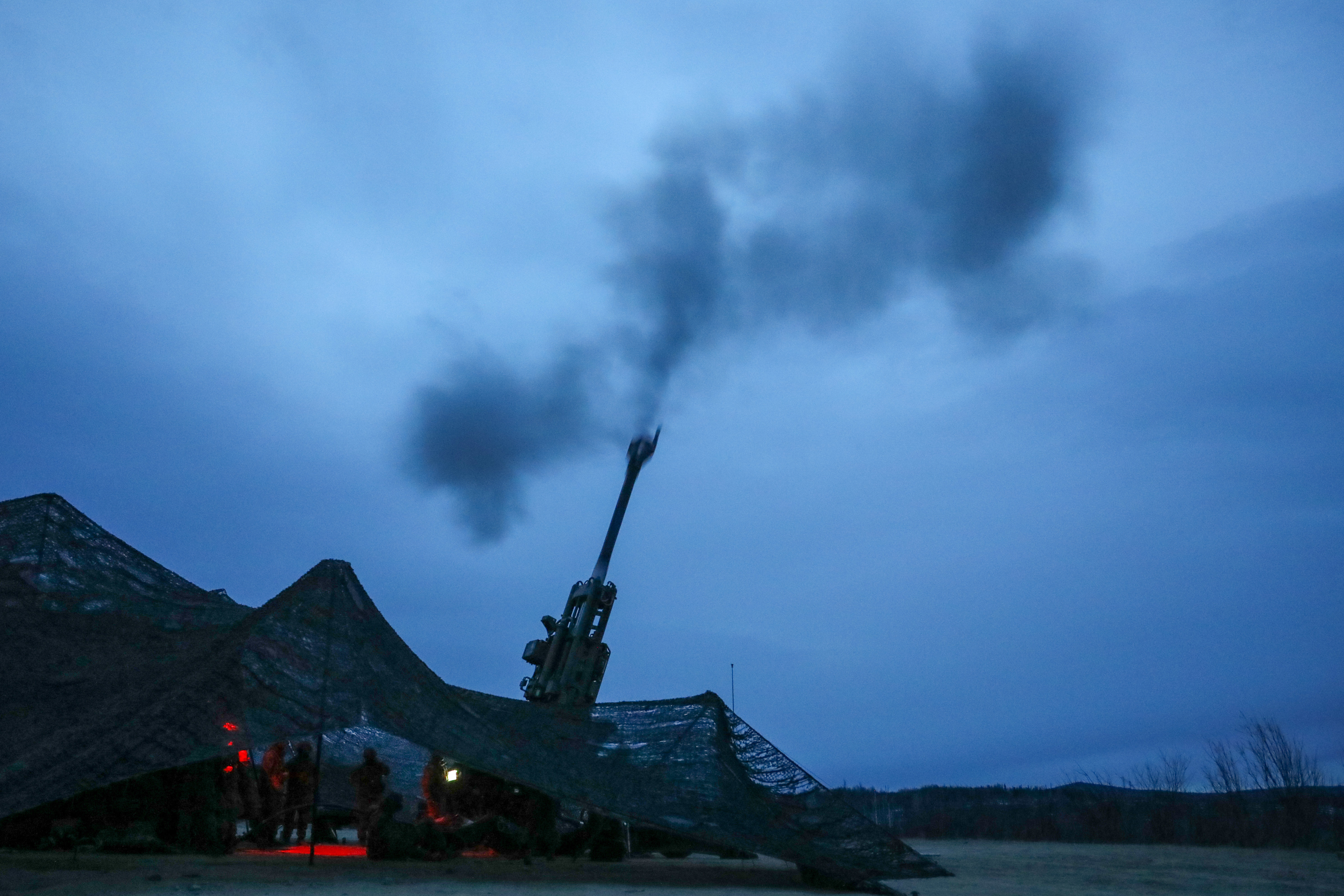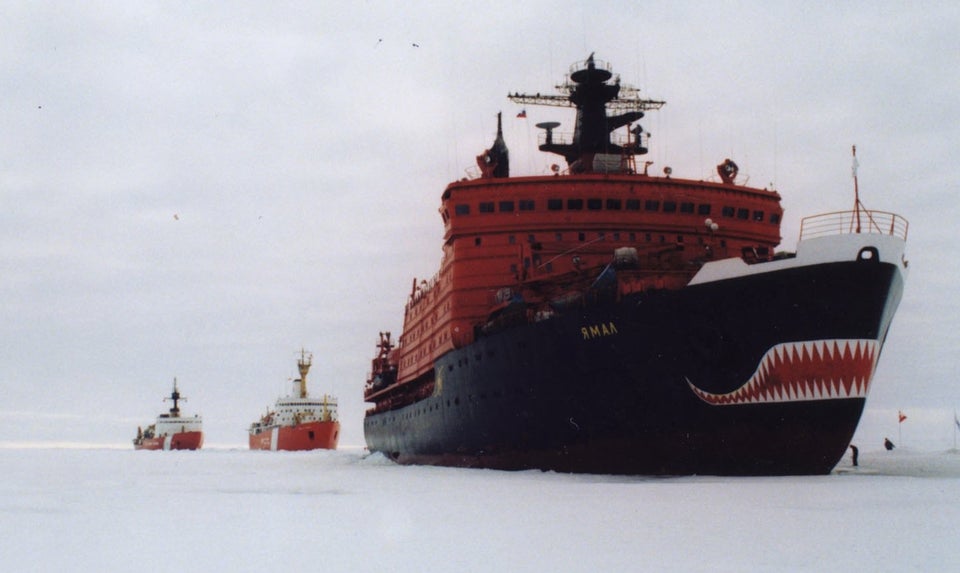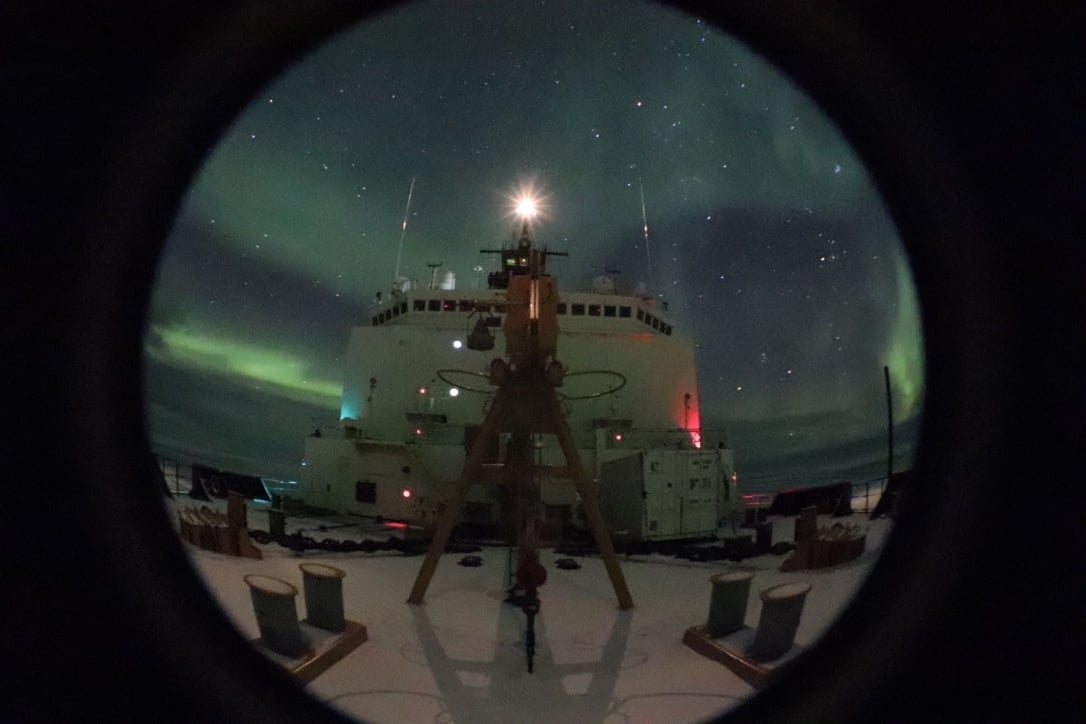
Top security experts recently warned that Russia’s plan to remain the sole Arctic superpower is “worrisome and troublesome” and argued that ambition has economic and military implications far into the North Atlantic and Pacific oceans.
Speaking Friday at a Wilson Center online forum, Col. Petteri Seppala, defense attaché at the Finnish embassy in Washington, said “the conflict potential rising” in the Arctic. Referring to Russia’s assertiveness, he added “we do need military capabilities to ensure all follow the rules” in a traditionally quiet region.
“The Arctic Forum is too limited” in its scope to take on military matters, he said.
The forum, established in 1996, consists of the eight-member nations with territory in the region and a number of observer nations – such as China, South Korea, Japan and Singapore – with major trading interests in the region at its sessions.
The forum historically has concentrated on science and research, environmental questions of climate change and economic development – particularly in energy, improving communications, and cooperation in search and rescue.
A Coast Guard forum among the eight-member nations was created in 2015 to take on shared concerns over law enforcement, fisheries management and disaster response.

Seppala, who noted that one-third of his county is above the Arctic Circle, was speaking as Finland just released its intelligence review of security in the Far North and Baltic Sea.
“Demilitarization was a great idea” for the Arctic, he added. Conditions, however, have changed as Moscow has built up its military naval, air and ground presence around its Northern Fleet – which is homeport to its ballistic missile submarine fleet – and extended its air and naval operations and exercises westward from those bases.
To expand its energy and mineral exploration and development, often in cooperation with China, Russia has built or modernized airfields and ports along the so-called “trans-polar bridge” sea route between the Atlantic and Pacific oceans.
The cooperation between Moscow and Beijing reflects not only great power competition with the United States, the participants agreed, but was also an effort to “triangulate” American response to regional security conditions.
At the same time, the Kremlin positioned more air and ground forces at these dual-use facilities. Russia, the nation with the largest amount of territory in the Arctic, considers the Northern Sea Route totally within its boundaries. In addition, an estimated 80 percent of its natural gas exports and 17 percent of its petroleum exports come from the Arctic.
To back up these claims, Russian President Vladimir Putin in March ordered a review of the country’s economic and military-strategic interests in the Arctic.
“We need to understand what is going on in our front yard,” Seppala said.
This month, Russia will take over the chairmanship of the forum for the next two years, adding fresh urgency to Arctic security concerns..
Royal Canadian Navy Capt. J.F. French said that dialogue over serious military and security concerns “are really limited” currently by Russia’s past behavior and continued aggressive posture in Europe. Regular military-to-military talks over “collective security management” between NATO and Russia were halted in 2014 when the Kremlin seized Crimea and actively supported separatists in eastern Ukraine.
There has been no concerted effort to re-start these face-to-face meetings.
Over the past seven years, the “trans-polar bridge” became more of a transportation reality for international trade and tourism, according to Michael Ryan, former deputy assistant secretary of defense for European and NATO policy. At the same time “we’re pre-occupied with China, everywhere but the Arctic.” He agreed with French’s observation that not talking with Russia about security in the Arctic keeps it off NATO’s and Washington’s immediate agenda.
But inattention does not lessen the risk of miscalculation or threat.
“Russia’s interest is big in the Arctic,” retired Rear Adm. Lars Saunes said. The former chief of the Royal Norwegian Navy and its coast guard said the Kremlin’s moves to assert its dominance threaten the region’s “peace, stability and predictability” in what an individual nation’s behavior would be there.
The danger of letting Russia’s ambitions go unchecked in the Far North could set up “the fifth Battle of the Atlantic.” A “revisionist Russia” needs to see from NATO and the Nordic countries – like Sweden and Finland – “the clear and present drumbeat of deterrence” over its Arctic military ambitions, he said.
That means more exercises like Trident Juncture, a large NATO exercise that took place in Norway in 2018 with more than 70 ships and 50,000 participants.
It should also mean more demonstrations of presence like the upcoming transit of the Northwest Passage by USCGC Healey (WAGB-20). The icebreaker is primarily on a scientific research mission this summer.
Ryan said the Arctic’s division among three combatant commands – [Northern, European and Pacific], which “can task but don’t” because their attention is focused on “wolves closer to the door” – complicate United States’ security planning.

For now, China’s Arctic interests have remained scientific and economic, Rear Adm. Pat DeQuattro, assistant deputy commandant for U.S. Coast Guard operations, said during the discussion. But that interest extends “to all Arctic countries,” including Greenland and Canada, where China has investments in building airfields, ports and communications systems, and mining interests.
In the longer run, China’s insistence on having a “seat at the table” in discussions of future Arctic development and security could mean many different things, according to retired Maj. Gen. Mats Engman of the Swedish Air Force. “For now, the Arctic is not a vital national interest for China” as it is for Russia, he said. The “seat at the table” remains one of being an active observer but not a participant.
But he added that current Chinese research in the region is focused on building its GPS system to more effectively use the Northern Sea Route, better understand the acoustics of its waters – which are important for submarine movement – and further explorations of energy and minerals, all with dual-use possibilities.
French of the Canadian Navy stressed the importance of collaboration among all NATO members on Arctic security questions before military-to-military talks resume with Russia over global security issues. This allied cooperation needs to happen before any regional negotiations with China and other nations, he said.
“Not to communicate [with Moscow] is not an option,” Seppala added, and it could kick-start establishing a new forum for Arctic security.
Different panelists said any new forum’s membership would need to be broader than nations with territorial claims in the region, opening the door for China and others to participate.
The panelists agreed that new forums – perhaps an Arctic defense or military chiefs forum or one similar to the Association of Southeast Asian Nations [ASEAN] – be established to resolve mounting security concerns.
Seppala said, “to maintain balance [in the Arctic, the region needs] operating rules that must be clear and equal.” An Arctic defense chiefs’ forum could provide a way “to have proper discussions” without resorting to military force even with “ones who don’t follow the rules.”





